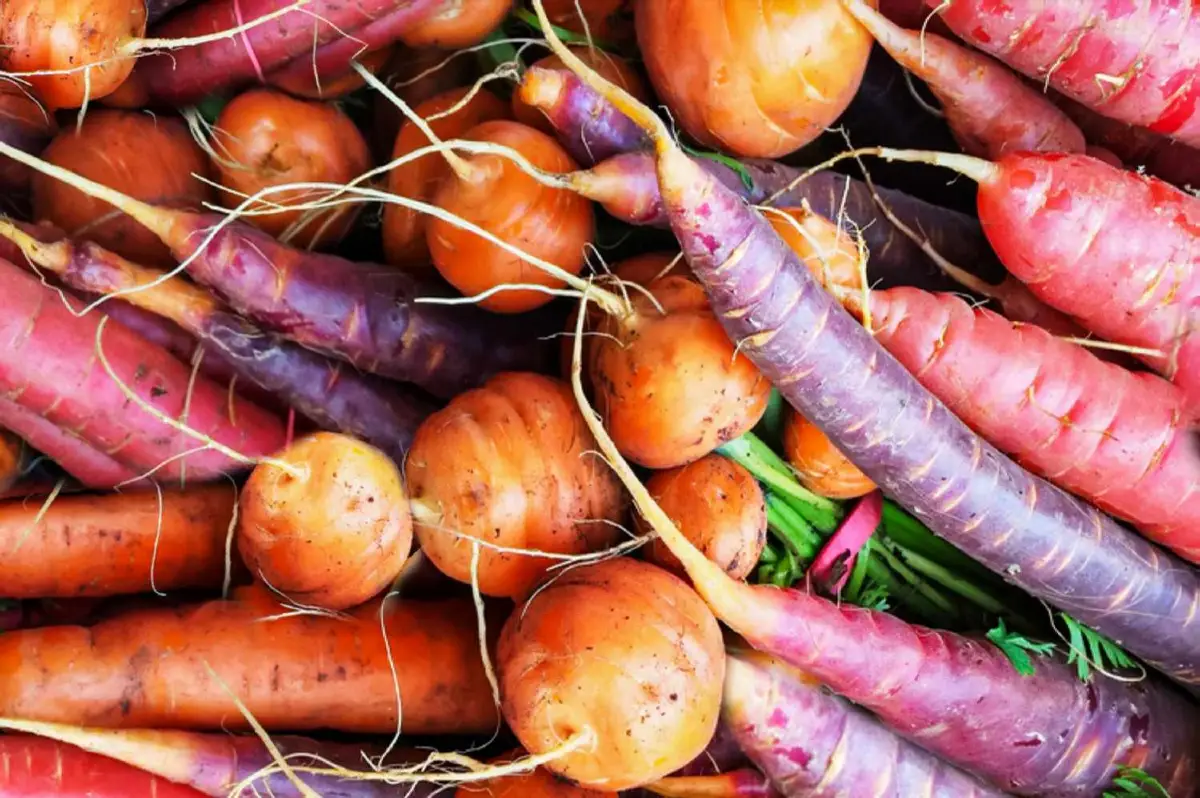Managing diabetes requires a careful balance of diet, exercise, and medication. Dietary choices play a pivotal role, and root vegetables, with their nutrient density and low glycemic index, can be a beneficial part of a diabetic diet. Consuming certain root vegetables may help stabilize blood sugar levels and provide essential nutrients without spiking glucose. Here are seven root vegetables that can be integrated into a diabetes-friendly diet.
- Beetroot
Beetroot is rich in antioxidants and may help lower blood pressure, a common comorbidity in individuals with diabetes. While beetroots have natural sugars, they have a medium glycemic index (GI) and high fiber content, which helps to release sugar slowly into the bloodstream. They can be roasted, boiled, or eaten raw in salads.
- Carrots
Carrots have a low glycemic index and are a great source of beta-carotene, which the body converts into vitamin A. This is essential for eye health, a concern for those with diabetes. Carrots can be enjoyed raw as snacks, steamed, or used as a base for soups and stews.
- Sweet Potatoes
Sweet potatoes are often recommended for diabetics because they are low in GI, especially when boiled. They are also high in fiber and contain a good amount of vitamin A and C. Their natural sweetness can satisfy a sweet craving without causing a significant rise in blood sugar levels.
- Turnips
Turnips are low in carbohydrates and calories, making them an ideal choice for people managing diabetes. They also provide a good source of fiber, which helps control blood sugar levels and aids in digestion. Turnips can be mashed as a substitute for potatoes, roasted, or added to stews.
- Radishes
Radishes have a low glycemic index and are low in carbs, which may prevent blood sugar levels from rising too quickly. They are also high in vitamin C, which can boost immunity. Radishes can be eaten raw, adding a crunchy, spicy kick to salads, or they can be cooked to give a milder flavor.
- Onions
Onions are low in calories and have a low glycemic index, making them an excellent addition to a diabetes-friendly diet. They contain compounds such as quercetin and sulfur, which can be beneficial for heart health. Onions can be added to a variety of dishes to enhance flavor without affecting blood sugar significantly.
- Garlic
Garlic has numerous health benefits and is known for its effect on improving blood circulation and lowering cholesterol levels. It has been suggested that garlic can also help regulate blood sugar levels due to its potential to increase insulin sensitivity. Garlic can be used in nearly any savory dish, adding flavor and nutrition.
Incorporating Root Vegetables in a Diabetes-Friendly Diet
When incorporating these root vegetables into your diet, it’s essential to consider the preparation method. For example, frying or using heavy sauces can add unnecessary fats and calories, potentially negating the blood sugar-regulating benefits. Instead, opt for steaming, roasting, or boiling.
It’s also crucial to be mindful of portion sizes, even with vegetables that have a low glycemic index. A balanced plate that includes a variety of foods is key in managing diabetes effectively.
Remember, while diet is a significant aspect of diabetes management, it should be part of a comprehensive approach that includes regular physical activity, medication management if necessary, and regular check-ups with a healthcare provider.
Root vegetables are a nutritious addition to a diabetes-friendly diet. They provide essential vitamins and minerals while helping to manage blood sugar levels. By incorporating these seven root vegetables into your meals, you’re not only enjoying a variety of flavors and textures but also taking steps to manage diabetes effectively. Always discuss dietary changes with your healthcare provider, particularly when managing a condition like diabetes.
